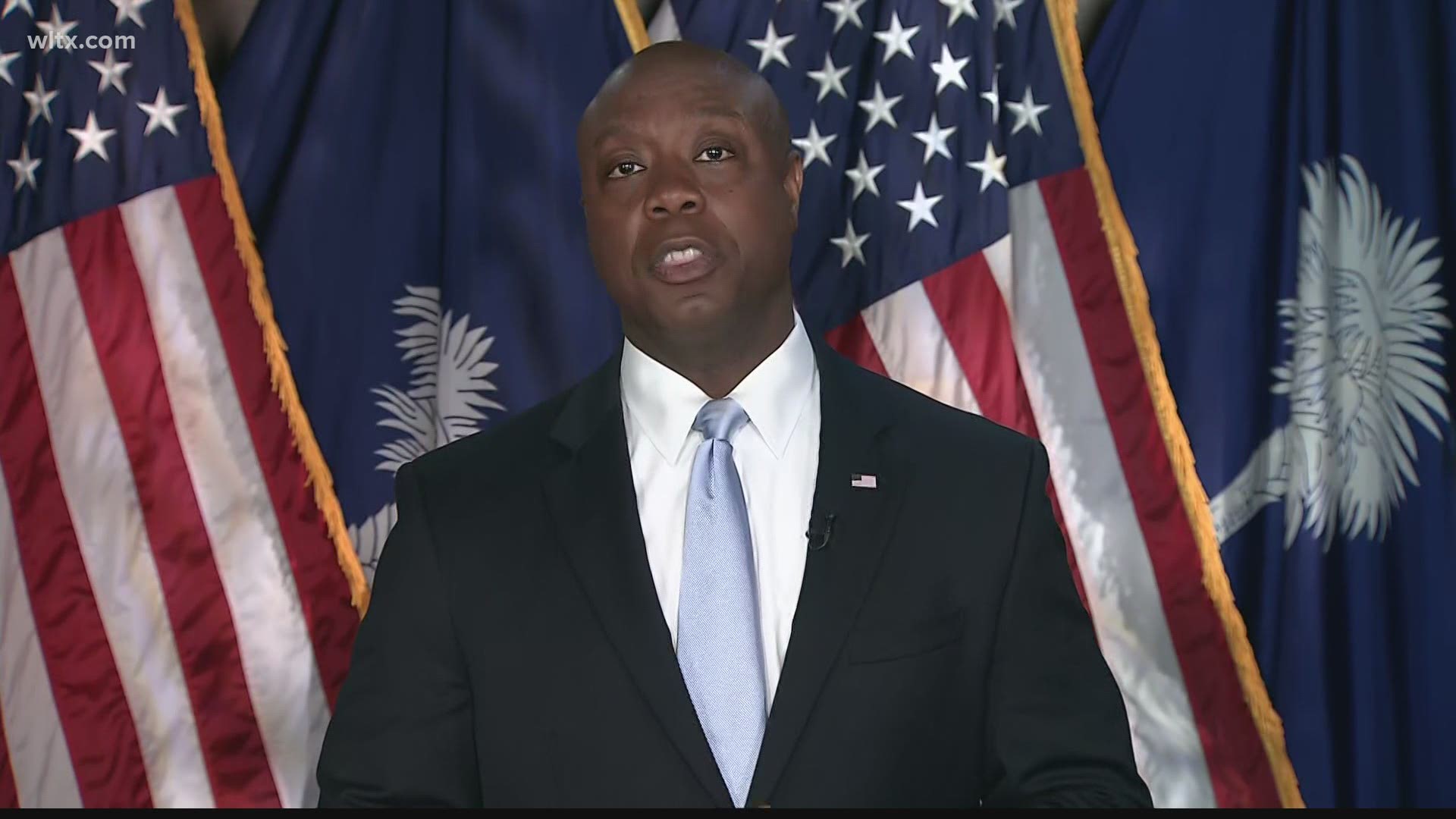WASHINGTON — Republican Sen. Tim Scott says President Joe Biden is failing to fulfill his promise to bring the country closer together and is even pulling the country further apart.
South Carolina Sen. Tim Scott used the Republican response to President Joe Biden’s address to Congress to vow that “America is not a racist country.”
Scott, the only Black Republican senator, seized on Biden’s calls earlier in the evening that passage of major police reform could help stamp out institutional racism nationwide. Scott countered that “today, kids are being taught the color of their skin defines them again. If they look a certain way, they’re the oppressor.”
Scott said Biden and other top Democrats have begun crying racism too frequently when it comes to unrelated policy disputes, saying “race is not a political weapon to settle every issue.”
Scott said public schools should have opened months ago and have been shown to be safe for children during the coronavirus pandemic. He called the last few months “the clearest case I’ve seen for school choice in our lifetimes.”
Scott said infrastructure is another issue that should unite the country. He said Republicans support investments in roads, bridges, airports and broadband, but Democrats want what he describes as a “partisan wish list” that goes beyond that. He said “they won’t even build bridges to build bridges.” Biden has appealed to Republicans to present him with a legitimate counteroffer to his plan.
Scott also bristled at Democratic suggestions that voting rights restrictions passed by GOP-controlled legislatures around the country were meant to keep minority Americans from casting ballots.
Talking about Georgia's new voting law, Scott called opposition to it “misplaced outage” that is not about the country's racial past but about “rigging elections in the future.” Democratic advocates have said the law makes it harder for people to vote, particularly people of color.
Scott argued that the economy under Republican President Donald Trump boomed, helping to lower unemployment dramatically for Black and Hispanic Americans before the coronavirus pandemic struck.

